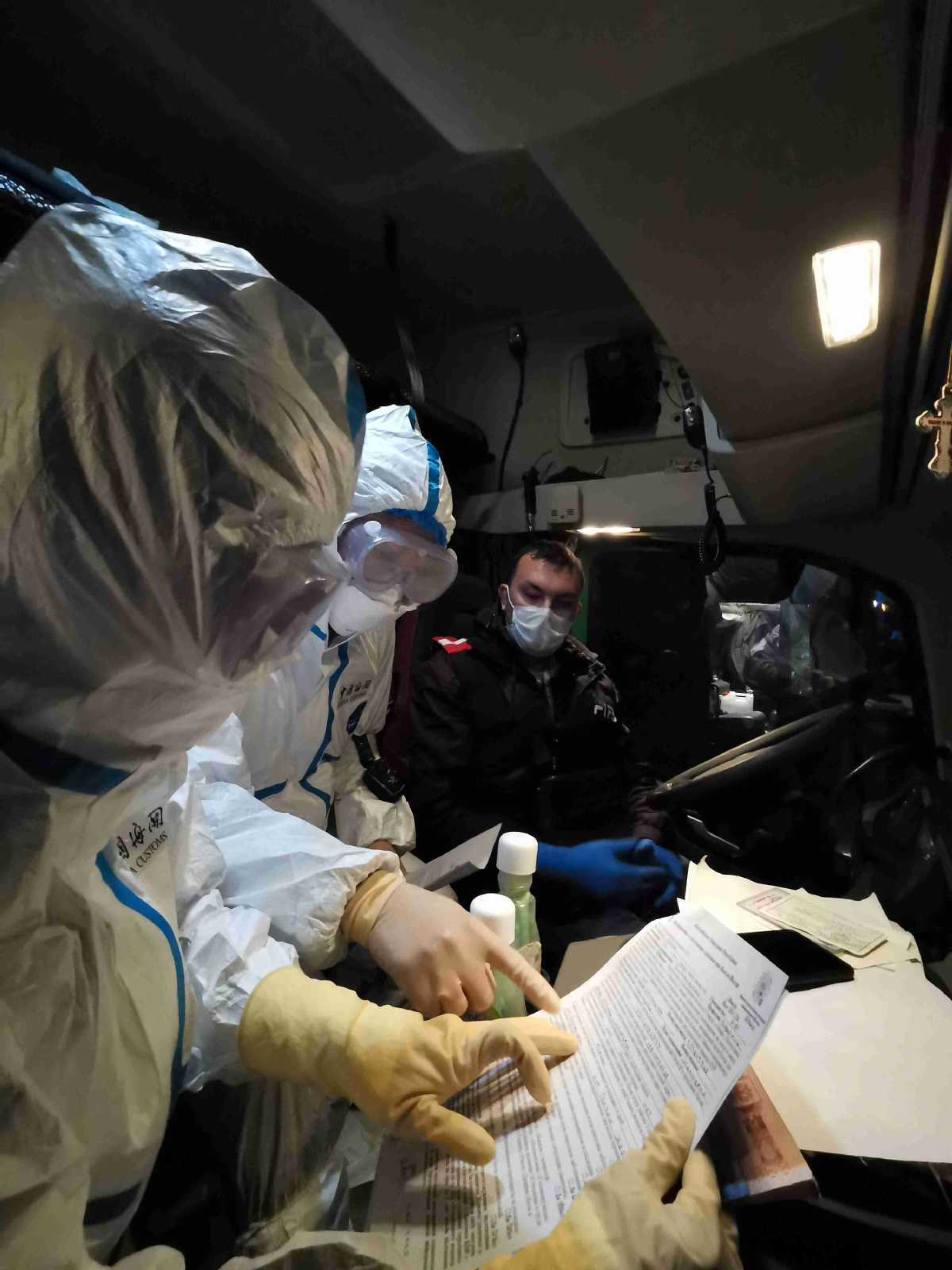
Customs officials show a motorist how to fill in his health declaration after he crossed the China-Russia border on April 6 at Manzhouli, in the Inner Mongolia autonomous region. (Photo: China Daily)
China will strengthen preventive and control efforts against COVID-19 on the nation's borders and land routes, Li Bin, deputy head of the National Health Commission, said on Friday.
He said the COVID-19 situation in China's neighboring countries is developing rapidly, so there is great pressure on the nation's land borders.
"Our border frontier regions are comparatively weak in the prevention and control of major epidemics, and can hardly meet the needs for disease monitoring, lab testing, or medical treatment," he said at a news conference in Beijing.
To tackle these issues, the National Health Commission has dispatched expert teams to eight border provincial regions to aid local disease control efforts. Many regions have now established relevant regulations and appropriate labs to test the samples, he said.
"The National Health Commission will provide timely medical and public health support to the border regions in accordance with their needs," he said.
Liu Xiaoming, vice-minister of transport, said that China has a total of 80 land ports, among which 34 remain open. The remaining ports have played a very important role in maintaining personnel and economic exchanges with neighboring countries and regions.
He said the 34 ports allow only commodity flow, but for a small number of people who still need to go across the borders, transport authorities are working together with customs and health control departments to tighten measures to ensure the passengers are managed in a "closed loop" to minimize the risk of epidemic spreading.
Truck drivers have also been put under strict management, with most foreign drivers entering and leaving China on the same day. Transport companies are encouraged to monitor truck drivers and constantly conduct nucleic acid tests on them, Liu said.


